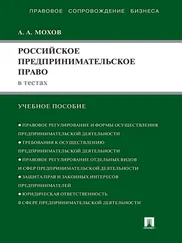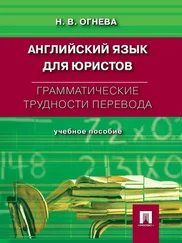1 ...8 9 10 12 13 14 ...37 – option – выбор; право выбора; опцион; дискреционное право
– past consideration – предшествующее встречное удовлетворение
– pledgee – залогодержатель
– preexisting duties – ранее существовавшие обязательства
– promissory estoppel – лишение права возражения на основании данного обещания
– release – отказ от права; передача права другому лицу; документ об отказе от права или о передаче права
– satisfaction – исполнение
– statutes of limitations – закон об исковой давности
– unconscionable – недобросовестный
– undisputed amount – неоспоримое, бесспорное количество
The mutual promise to exchange things of value is called consideration. It binds the parties together. If an agreement has no consideration, it is not a binding contract.
Consideration consists of a mutual exchange of benefits and sacrifices between contracting parties. In the exchange, what is a benefit to the offeree is, at the same time, a sacrifice to the offerer. Likewise, the benefit bargained for by the offerer results in a sacrifice by the offeree. The legal term used for this sacrifice is detriment. A detriment is any of the following: doing (or promising to do) something that one has a legal right not to do; giving up (or promising to give up) something that one has a legal right to keep; and refraining from doing (or promising not to do) something that one half a legal right to do. This last type of detriment is known as forbearance. Consideration has three characteristics:
• promises made during bargaining are dependent on the consideration to be received;
• the consideration must involve something of value; and
• the benefits and detriments promised must be legal. Unless an agreement has been bargained for, the law will not enforce it. An agreement involves a bargained-for exchange when a promise is made in exchange for another promise, a promise is made in exchange for an act, or a promise is made for a forbearance of an act. The concept of bargaining means that each party is hurt in some way if the other party fails to keep a promise. Conversely, each party gains something when the promises are kept and the exchange is made.
It is important only that the parties freely agree on the value and the price. There is, however, an exception to this rule. Courts, at times, give a party relief when the consideration is so outrageous that it shocks the conscience of the public. A court may refuse to enforce a contract or any clause of that contract if it is considered unconscionable, that is, ridiculously inadequate, for example, when bargaining power between the two parties is greatly unequal.
Consideration requires that the benefits and sacrifices promised between the parties be legal. Absence of legality renders the consideration invalid. Thus, a party cannot agree to do or promise to do something that he or she does not have the legal right to do.
Most often, consideration takes the form of money, property, services, or benefits and sacrifices.
A promise not to sue, when there is the right to sue, is enforceable when supported by consideration. Promising not to sue is a forbearance. A promise not to sue, in exchange for an amount of money, is a customary way to settle a pending lawsuit. Settlements of this type are often preferred to expensive and time-consuming litigation.
Acceptance of an agreement not to sue, supported by consideration, terminates one's right to continue any lawsuit, at present or in the future, on the grounds described in the agreement. A promise not to sue is commonly called a release.
When charitable pledges are made to fund a specific project, the pledgee's sacrifice is carrying out that project. In this sense, pledges are considered unilateral agreements, enforceable only when accepted by commencement of the proposed project.
Problems may arise when the consideration involved in a contract is money and the parties disagree as to the amount of money that the debtor owes the creditor.
A disputed amount, or unliquidated amount, is one on which the parties never agreed. Final settlement of disputed claims may lead to misunderstanding, dispute, and lengthy negotiation. If a creditor accepts as full payment an amount that is less than the amount due, then the dispute has been settled by an accord and satisfaction. Accord is the implied or expressed acceptance of less than what has been billed the debtor. Satisfaction is the agreed-to settlement as contained in the accord. Only if the dispute is honest, made in good faith, and not superficial or trivial will the courts entertain arguments based on accord and satisfaction.
An undisputed amount, or liquidated amount, is one on which the parties have mutually agreed. Although a party may have second thoughts about the amount promised for goods or services rendered, the amount that was agreed to by the parties when they made their contract remains an undisputed amount. A partial payment in lieu of full payment when accepted by a creditor will not cancel an undisputed debt.
As a general rule, a contract is not enforceable if it lacks consideration.
Some jurisdictions have eliminated the element of consideration in a few specifically named contracts. Typical agreements falling into this category include promises bearing a seal, promises after discharge in bankruptcy, debts barred by the statute of limitations, promises enforced by promissory estoppel, and options governed by national law.
Persons discharged from indebtedness through bankruptcy may reaffirm and resume their obligations, as prompted, perhaps, by moral compulsion. The bankruptcy court must hold a hearing when a reaffirmation is intended, informing the debtor that reaffirmation is optional, not required, and informing the debtor of the legal consequences of reactivating a debt.
Laws known as statutes of limitations restrict the time within which a party is allowed to bring suit.
Under the doctrine of promissory estoppel, a promise may be enforceable without consideration. This doctrine is used, on occasion, to prevent injustice when a person changes his or her position significantly in reliance on another's promise and the promise is not fulfilled. The court will «estop» the person who made the promise from claiming that there was no consideration. Certain conditions must be met, however, before a court will apply this principle. First, the promise must be made to bring about action or forbearance by another person who gave no consideration. Second, the one who gave no consideration must have relied on the promise and must have changed his or her position in a significant way. Third, injustice can be avoided only by enforcing the promise.
An option is the giving of consideration to support an offerer's promise to hold an offer open for a stated or reasonable length of time. The modern trade law has made an exception to the rule requiring consideration when the offer is made by a merchant; in such cases, an offer in writing by a merchant, stating the time period during which the offer will remain open, is enforceable without consideration.
Certain promises, however, the courts do not enforce because they lack even the rudimentary qualities of valid consideration. Included in this category are illusory promises, promises of future gifts, promises of legacies, promises based on past consideration, and promises based on preexisting duties.
Читать дальше
Конец ознакомительного отрывка
Купить книгу












